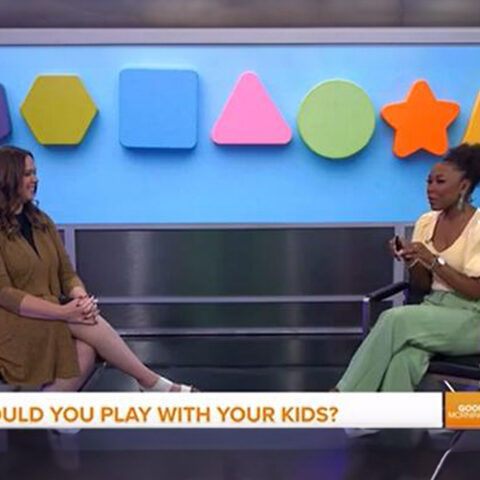
Should you play with your kids?
Staff therapist Rachel James shares insights from her perspective as a Registered Play Therapist on WFAA Channel 8’s Good Morning Texas.
The Importance of Play: How Parents Can Navigate Boundaries with Their Kids
As parents, it’s natural to want to engage with our children, especially when it comes to play. Whether they’re playing with siblings, friends, or parents, kids thrive when they’re allowed to explore, imagine, and interact. But how much should parents really get involved? This question sparked quite the debate after a TikTok mom shared her take on the topic. Licensed Professional Counselor and Registered Play Therapist Rachel James weighs in on the conversation and provides valuable insights.
Should Parents Play with Their Children?
According to Rachel, the short answer is “yes” – parents should play with their children, but with boundaries in mind. “There’s an obvious benefit to parents playing with their kids,” Rachel explains, highlighting that activities like play can enhance emotional regulation, strengthen bonds, and help children recognize social boundaries and cues.
However, while playing with your child has its benefits, it’s important to strike a balance. Parents shouldn’t feel pressured to be their child’s playmate all the time. “There needs to be a balance that happens within that play,” Rachel advises, especially when children don’t have siblings to play with regularly.
Navigating Play When You’re an Only Child Parent
For parents of only children, Rachel acknowledges the natural obligation many feel to step in as their child’s primary playmate. However, she also stresses the importance of fostering independent play. “As an only child, you kind of have this fixed imagination where you can figure things out on your own,” Rachel notes, encouraging parents to provide some space for their child to develop self-reliance and creativity without constant intervention.
Quality Time vs. Playing with Toys
One point of discussion in the TikTok mom’s video was her decision to avoid playing with toys with her kids but instead focus on spending quality time together. Rachel supports this idea, noting that play doesn’t always have to revolve around toys or imaginative games. “Playing with kids doesn’t have to be full-on imaginative play,” Rachel explains. “It could be cooking in the kitchen, taking out the trash, or getting the mail.” The key, she says, is the quality time spent together, which children crave just as much as traditional play.
As children grow, their need for imaginative play may increase, but Rachel reassures parents that they can still find meaningful ways to connect through everyday tasks. Simply doing life together, she says, can be enough.
Setting Boundaries for Play
Let’s face it—playing with kids can be exhausting! Rachel acknowledges that many parents may struggle with finding the energy to engage in constant play. One helpful strategy she shares is to set clear boundaries. For example, she might say, “Mommy’s going to rest her body right now,” giving her children a cue that it’s time to wind down from active play.
Rachel also suggests adopting a more passive play role. Instead of always being the one to direct the play, parents can let their children take the lead. “You might be the patient while they’re playing doctor and they’re telling you what’s going on,” she explains. This way, children can still engage in meaningful play, but the parent isn’t exerting all their energy.
How Play Can Help Kids at Different Stages
Play isn’t just fun and games—it’s an important part of a child’s development. Different stages of play are crucial in helping kids navigate their emotions, build social skills, and process what’s happening in their lives. Younger children may need more guidance and involvement from parents during play, while older kids naturally become more independent.
Rachel encourages parents to be attuned to their child’s needs at each developmental stage. As children grow, their play will evolve, and parents should adjust their involvement accordingly.
Striking a Balance Between Play and Independence
In closing, Rachel offers some advice on finding the right balance. While it’s important to engage with your child, it’s also crucial to foster independence. “There needs to be a balance,” she says. “Pushing your kids away to the point where they feel rejected isn’t beneficial, but neither is entertaining them every second of the day.”
Ultimately, teaching kids how to play independently is an essential skill. “You don’t want them at your ankles every second of the day,” Rachel notes, stressing that independent play is vital for building confidence and problem-solving skills.
Conclusion
The debate around whether parents should play with their children will likely continue, but Rachel James offers a refreshing perspective. It’s about quality time, setting boundaries, and fostering independence. Parents don’t have to be involved in every game or activity, but they should aim to create meaningful moments with their kids while allowing space for self-directed play.
At the end of the day, it’s all about balance. Play is important, but so is giving your child the tools they need to grow and thrive on their own.
